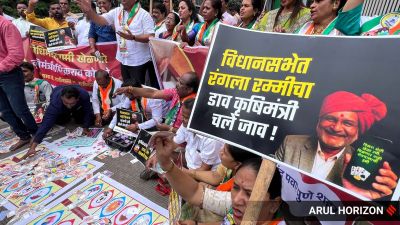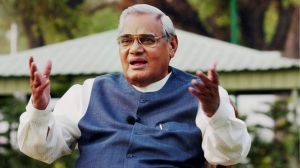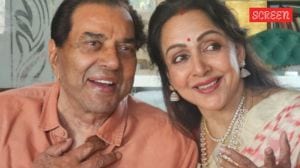Case in Supreme Court: Can an underage Muslim girl marry after attaining puberty?
The Supreme Court intervention opens up the issue of regulating the minimum age of marriage for women and the impact it has on personal law.
 Currently, provisions of the Prohibition of Child Marriage Act, 2006 clash with Muslim Personal Law. (Express Photo/Amit Mehra)
Currently, provisions of the Prohibition of Child Marriage Act, 2006 clash with Muslim Personal Law. (Express Photo/Amit Mehra) The Supreme Court on Friday (January 13) agreed to examine a decision of the Punjab and Haryana High Court holding that a Muslim girl can marry a person of her choice after attaining puberty. A bench headed by Chief Justice of India D Y Chandrachud said the HC’s decision should not be relied on as a precedent in any other case.
In October last year, another bench of the Supreme Court had agreed to hear an appeal on the case and appointed senior advocate Rajshekhar Rao as an amicus in the case. The SC intervention opens up the issue of regulating the minimum age of marriage for women and the impact it has on personal law.
What is the Punjab and Haryana HC ruling?
In October last year, the Punjab and Haryana High Court while hearing a Habeas Corpus petition ruled that a Muslim girl is free to marry a person of her choice after attaining puberty, unless she is under the age of 18.
A 26-year-old Muslim man who had married a 16-and-a-half-year-old girl had moved the High Court seeking custody of his spouse. The Punjab police had taken custody of the girl since she was a minor.
Justice Vikas Bahl examined the girl’s statement and noted in the judgment that “she had run from the house along with the present petitioner out of her own will as the dentenue is fond of the petitioner and wished to marry him.”
The girl, referred to as the dentenue, also told the Panchkula magistrate in her statement under Section 164 of the Code of Criminal Procedure that she “had run away from her house along with the present petitioner out of her own will and has stated that her family members forcefully engaged her with her maternal uncle and she has performed Nikah with the present petitioner on 27.07.2022 in a Mosque at Manimajra and she does not want to stay with her family and in fact, is married to the petitioner and wishes to reside with him.”
Under these circumstances, the HC allowed the marriage of the girl as per her free, especially since under Muslim law, a girl can be married after attaining puberty.
What is the Muslim law on the age of marriage for a woman?
The HC ruling quoted the Principles of Mohammedan Law by Sir Dinshah Fardunji Mulla, on the capacity for marriage. It states:
Capacity for marriage:
- Every Mahomedan of sound mind, who has attained puberty, may enter into a contract of marriage.
- Lunatics and minors who have not attained puberty may be validly contracted in marriage by their respective guardians.
- A marriage of a Mahomedan who is of sound mind and has attained puberty, is void, if it is brought about without his consent.
Explanation. Puberty is presumed, in the absence of evidence, on completion of the age of fifteen years.
What is the challenge?
The National Commission for Protection of Child Rights had moved the Supreme Court against the HC ruling. Solicitor General Tushar Mehta, appearing for the child rights’ body, argued that the High Court’s ruling essentially allowed a child marriage, and this was in violation of the Prohibition of Child Marriage Act, 2006.
The plea argued that the Child Marriage Act is a secular legislation and would apply to all religions, overriding their personal law.
What is the law on child marriage?
Under the Prohibition of Child Marriage Act, 2006, any marriage below the prescribed age of 18 years for women and 21 for men is illegal, and the perpetrators of a forced child marriage can be punished. However, child marriages are illegal but not void. It is voidable at the option of the minor party. This means, the marriage can be declared void by a court only if the minor party petitions the court.
The NCPCR also argued that since the Protection of Children from Sexual Offences Act, 2012 does not recognise consent for sexual activity by minors, marriages on attaining puberty cannot be allowed.
Several High Courts have ruled differently on this issue.
The Karnataka High Court, in a 2013 ruling in the case of Seema Begaum D/O Khasimsab vs State Of Karnataka (2013), said that “no Indian citizen on the ground of his belonging to a particular religion, can claim immunity from the application of the P.C.M”.
In February 2021, the Punjab and Haryana High Court granted protection to a Muslim couple (a 17-year-old girl married to a 36-year-old man), holding that theirs was a legal marriage under personal law. The HC examined provisions of the Prohibition of Child Marriage Act but held that since the special law does not override personal laws, Muslim law will prevail.
In 2021, the Centre introduced a Bill to increase the age of marriage for women, and ensure harmony in the age limit across religions.
What is the proposed law?
Union Minister for Women and Child Development Smriti Irani had introduced a Bill in the Lok Sabha to amend the Prohibition of Child Marriage Act, 2006 to increase the age of marriage for women, and ensure harmony in the age limit across religions. The Bill was subsequently referred to a Parliamentary Standing Committee.
“All women from all faiths, under Hindu Marriage Act or the Muslim Personal Law, should get equal rights to marry,” Irani had said while introducing the Bill.
During the debate, E T Mohammed Basheer of the Indian Union Muslim League said the Bill was unconstitutional and was violative of Article 25 of the Constitution, which guarantees the freedom of conscience and free profession, practice and propagation of religion.
- 01
- 02
- 03
- 04
- 05






































